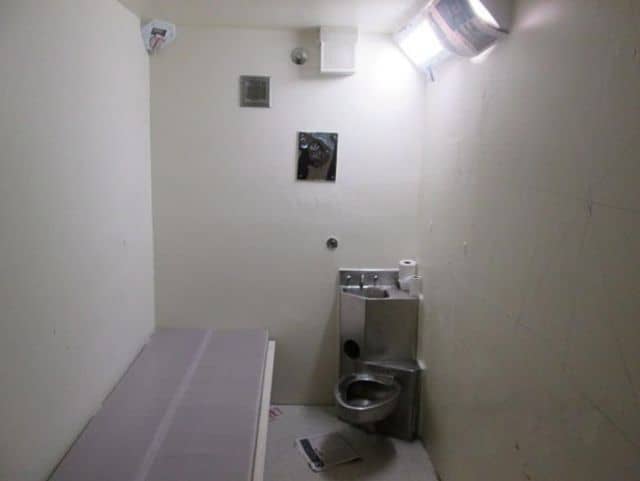
A solitary confinement cell
The Court of Appeal of British Columbia has given the federal government more time to fix its solitary confinement law after a lower court declared the law unconstitutional last year.
The B.C. Supreme Court ruling last January gave Ottawa a year to enact replacement legislation, and the Appeal Court has now extended the deadline to June 17, with conditions to protect prisoners’ constitutional rights in the meantime.
“While we are prepared to extend the suspension of the declaration of constitutional invalidity, that cannot be a justification for the federal government to maintain unchanged the conditions of inmates kept in administrative segregation,” a three-judge panel wrote in a joint ruling released Monday.
“Without violating the existing legislation, the government must take steps to deal with constitutional concerns.”
The conditions to protect prisoners include that health-care professionals must complete daily visual observations of inmates in solitary confinement and advise the institutional head within 24 hours if they believe the inmate must be removed from segregation.
The B.C. Civil Liberties Association and the John Howard Society of Canada launched the legal challenge.
The two groups said in a joint statement before the Appeal Court’s ruling was released that prolonged, indefinite solitary confinement causes “terrible physical, psychological and spiritual consequences.”
“We know that solitary confinement leads to death. Isolating incarcerated people from meaningful human contact is a torturous practice that must end,” the groups said.
A nine-week trial in 2017 heard from former inmates who continue to experience mental health issues after being released and from the father of a 37-year-old man who hanged himself at Matsqui Institution in Abbotsford, B.C., following his placement in a segregation cell.
The advocacy groups are also fighting a bill introduced by the federal government in October that would limit solitary confinement to 22 hours or fewer per day.
The bill would mean prisoners who pose risks to security or themselves would instead be moved to new “structured intervention units” and offered the opportunity to spend four hours a day outside their cells, with a minimum of two hours to interact with others.
However, the bill does not include hard caps on how many days or months inmates can be isolated from the general prison population.
The Canadian Civil Liberties Association launched a separate case against solitary confinement in Ontario, and the Court of Appeal in that province has given the federal government until April 30 to enact new legislation.
The federal government did not immediately respond to a request for comment.


